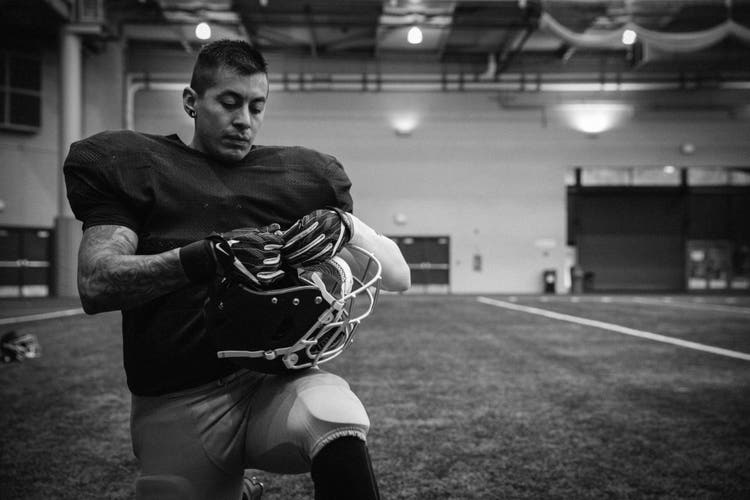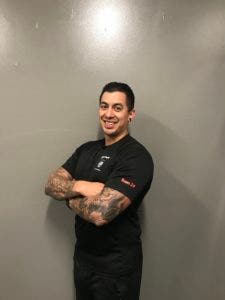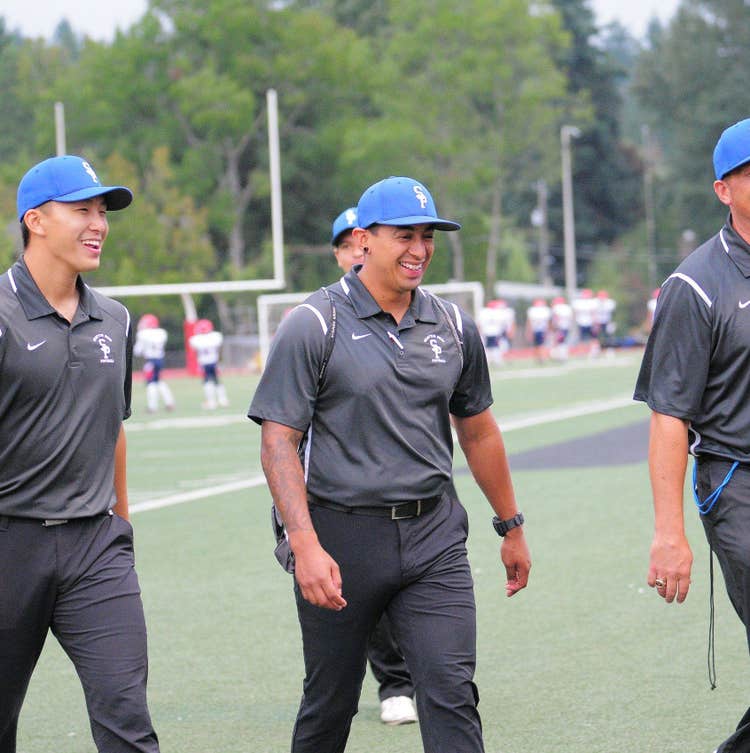Why Student Athletes Can Benefit From Personal Training

While it’s a no-brainer for most students to figure out what to do with their summer vacation (relax! Or get a summer job!), for many student athletes, summer break presents an interesting question: To train, or not to train? If they do train, it might not be clear how to train properly during the offseason.
Adrian Mendez has been a full-time certified personal trainer for four years, but he’s been studying how the body moves and trains for much longer.
A lower-back injury from improper weightlifting in 2002 motivated Mendez to study exercise science, and he applied his research as a private trainer and coach to high-school athletes in a variety of sports—football, lacrosse, tennis, baseball, and track and field. Currently, Mendez works as a fitness manager at the 24 Hour Fitness West Seattle Active Club, but he still coaches high-school football on the side.

We asked Mendez how student athletes can benefit from personal training and how that training looks different from sports practice.
24Life: Is it important for student athletes to train in the offseason or is that overtraining? Should they take summers off to just “play”?
Adrian Mendez: For the average student athlete, it is more important to be a multi-sport athlete to learn and develop a variety of skills, versus training specifically for one sport. With that said, I still recommend young student athletes work on improving their biomechanics and learn how to connect their minds to their bodies. As young athletes grow and get taller and stronger, it is vitally important to relearn specific movement patterns to decrease the risk of injury. This is much more important for the longevity of the athlete, more so than how much they can bench or squat going into the season.
Overtraining is a real thing, but if they are working with someone who knows the signs of overtraining, it is easy to work around and increase and decrease intensity to still be effective but not break down the body too much. It is important to have balance, and I would encourage student athletes to take a month or two spread out throughout the year where they can still be a kid and just have fun.
24Life: Do you recommend student athletes work with a personal trainer during or after their season, or both?
AM: When I was training privately, I personally did offseason training due to the time restraints that student athletes have with school, practice and homework.
The offseason is the appropriate time to assess weaknesses and areas that need emphasis, and focus on those areas. The offseason is also a good time to continue to work sport-specific drills and movements that will make the sport easier and more effective. In-season work is vital for maintaining strength and power output, but more important, for preventing overuse and repetitive injury. Working with a trainer during the in-season can keep the body guessing and getting better year-round instead of the typical cycle of building the body in the offseason and breaking it down during the season.
24Life: How can working with a personal trainer benefit a student athlete and improve his or her performance in a sport?
AM: A good trainer coaches and educates while you train. Therefore, working with a trainer who understands the demands needed to succeed in your specific sport yields great benefits. You will further understand your body, how to listen to it, how to control it, how to isolate and activate muscles correctly, and how to engage and utilize your core in all movements. This added stability, balance and coordination will multiply the typical offseason training to bring better performance while decreasing injury and burnout.

24Life: What does working with a personal trainer look like vs. sporting practice—how are the training sessions similar or different?
AM: A personal trainer’s job is to teach proper form and proper ways to isolate and activate muscles and muscle groups. Practice is designed to get you better at a very specific skill or movement pattern. Essentially, working with a personal trainer teaches you how to be a better you, in relation to your sport or lifestyle, whereas practice for a sport teaches you how to be a better teammate.
24Life: Will my personal trainer talk to my head coach about coming up with a plan of action for my outside training?
AM: I rarely had to speak with a coach because I coached most of my athletes at some point, so I knew their weaknesses and areas to improve. However, in the times that I didn’t, I did speak to both the parents and sometimes their head coaches to help guide my program for the athlete’s training.
24Life: Can you share any stories of student athletes you’ve trained and how the training positively impacted their athletic performance?
AM: Last year, I had the opportunity to work with a very gifted student athlete who excelled in football and lacrosse, and he would have been a stud in track and field if it didn’t fall in the same season as lacrosse. The season prior to working with him, he suffered two broken thumbs and a strained hamstring that led to him missing more than half the season in football. I worked with this individual for three months in the offseason before he returned to his high school for the upcoming lacrosse season. In his first two weeks, he contacted me to let me know that he not only felt faster and better conditioned than everyone around him, but he was injury-free, led the team in assists and was the second highest scorer. Working together again for three months after lacrosse and ramping up for football season, he played the entire season injury-free and has positioned himself to now play football at the collegiate level.
24Life: How vital it is to have good nutrition if you are a student athlete—any guidance for student athletes?
AM: Nutrition is a huge component to health and fitness, and it is even more important when it comes to sport performance. As the body and metabolism are working on overdrive to grow and mature, it’s important to eat and eat a lot—but not fast food and empty calories. Focus on good protein sources and eating to fuel the body every two to three hours. Food is valuable information and energy for your body! You can’t expect to perform at a high level without putting in high-quality food that comes from natural sources and not processed “food” from a for-profit chain of restaurants.
Photo credit: Courtesy of Adrian Mendez